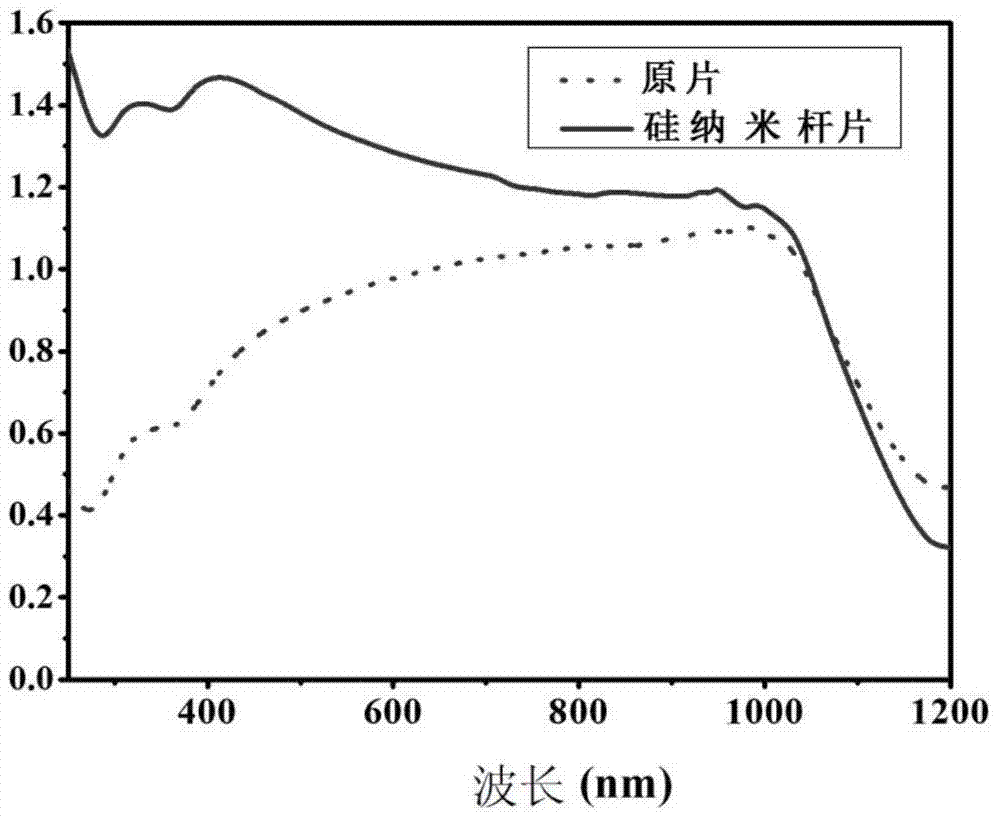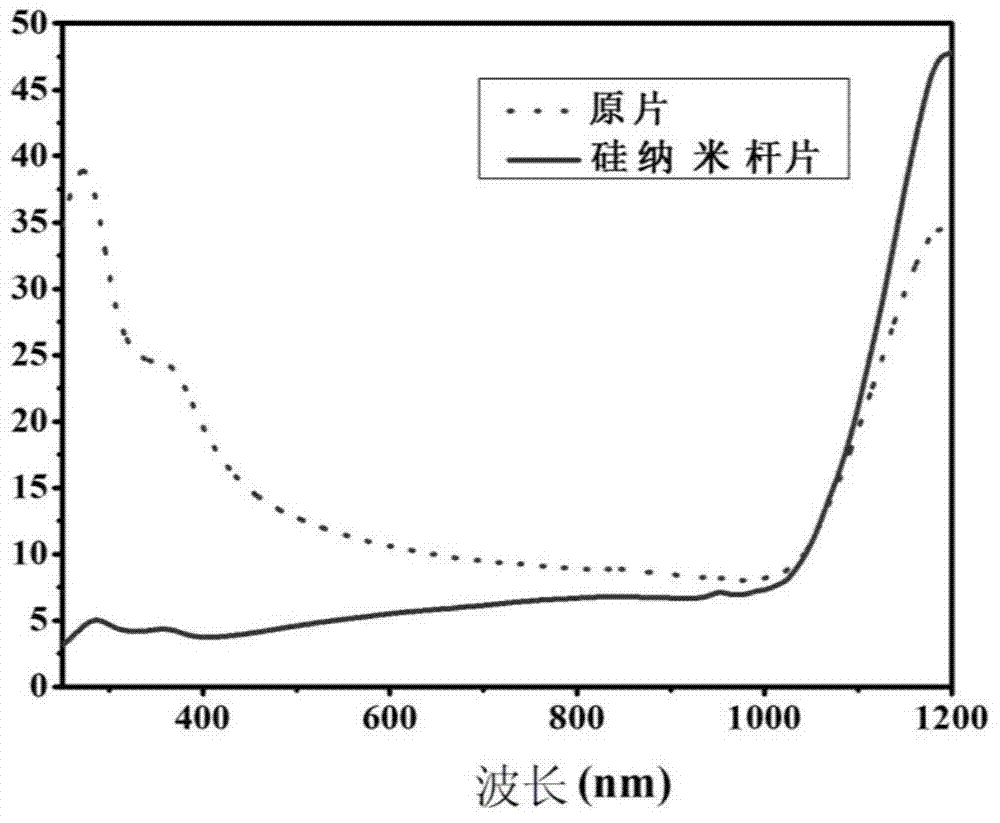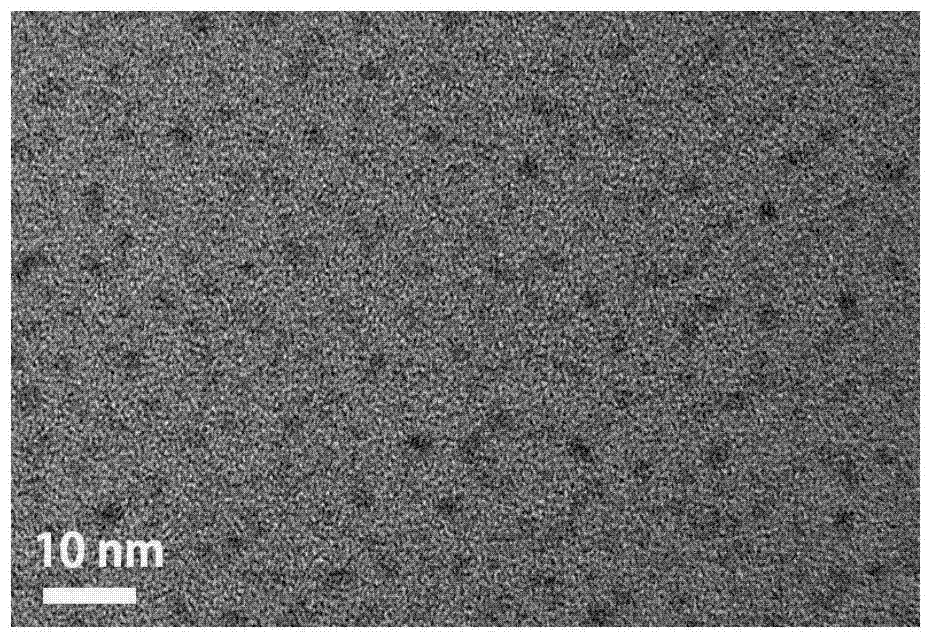Si nanometer rod/QDs (quantum dots) composite effective silica-based solar cell and manufacturing method thereof
A technology of solar cells and cells, applied in the direction of nanotechnology, nanotechnology, nanotechnology for materials and surface science, etc., to achieve the effects of slowing down the recombination rate, improving photoelectric performance, and improving efficiency
- Summary
- Abstract
- Description
- Claims
- Application Information
AI Technical Summary
Problems solved by technology
Method used
Image
Examples
Embodiment 1
[0030] (a) Dip the silicon-based cell into an anhydrous ethanol solvent for ultrasonic cleaning for 20 seconds, and then immerse it in twice distilled water for ultrasonic cleaning for 2 minutes.
[0031] (b) Prepare a mixed solution of 0.002mol / L silver nitrate and 0.5mol / L HF, and immerse the silicon wafer for 30s.
[0032] (c) configure 0.4mol / L H 2 o 2 , 0.5mol / L HF mixed solution, dip the silicon chip for 30s, and ultrasonically clean it with concentrated nitric acid for 3min.
[0033] (d) configure 0.005mol / L lead acetate solution; add 0.01mol / L 3-mercaptopropionic acid; add 2×10 -4 mol / L cetyltrimethylammonium bromide to obtain the precursor solution. Prepare 0.005mol / L sulfide amine solution, the volume is the same as the lead acetate solution, slowly drop into the precursor solution at a rate of 20s.
[0034] (e) Immerse the treated silicon-based cell in the quantum dot colloid solution for 30s, pull it slowly at a speed of 0.5cm / s, and dry it slowly with a hair d...
Embodiment 2
[0037] This example differs from Example 1 in that: step b) the metal source is silver acetate with a concentration of 0.005 mol / L.
Embodiment 3
[0039] This example differs from Example 1 in that: step b) the metal source is ferric nitrate with a concentration of 0.005 mol / L. Step c) H 2 o 2 The concentration is 0.3mol / L, and the concentration of HF is 0.6mol / L.
PUM
 Login to View More
Login to View More Abstract
Description
Claims
Application Information
 Login to View More
Login to View More - R&D
- Intellectual Property
- Life Sciences
- Materials
- Tech Scout
- Unparalleled Data Quality
- Higher Quality Content
- 60% Fewer Hallucinations
Browse by: Latest US Patents, China's latest patents, Technical Efficacy Thesaurus, Application Domain, Technology Topic, Popular Technical Reports.
© 2025 PatSnap. All rights reserved.Legal|Privacy policy|Modern Slavery Act Transparency Statement|Sitemap|About US| Contact US: help@patsnap.com



